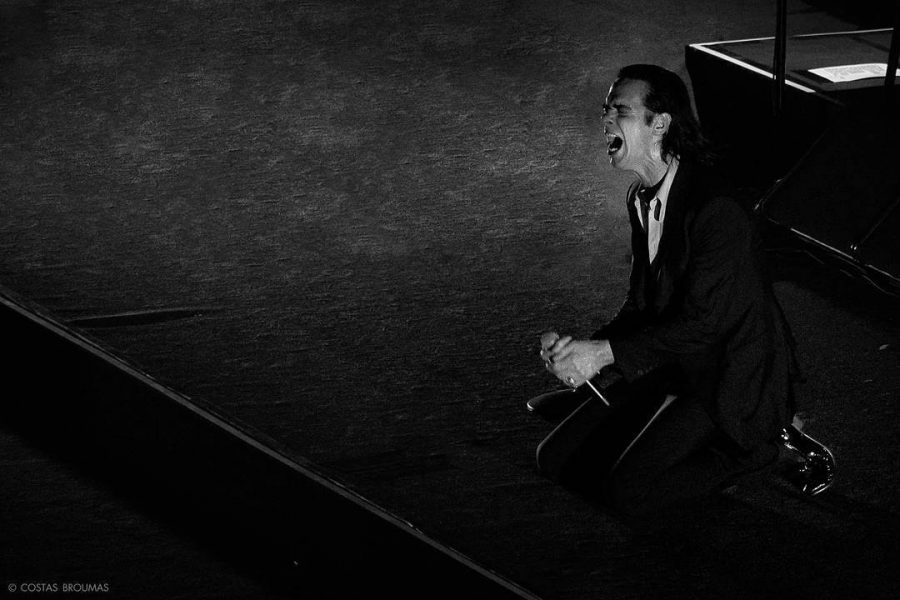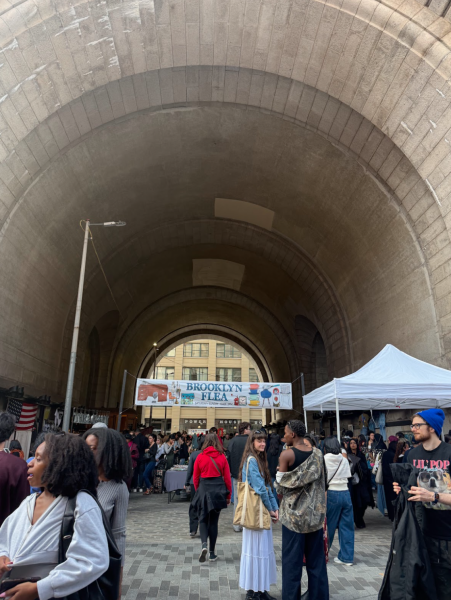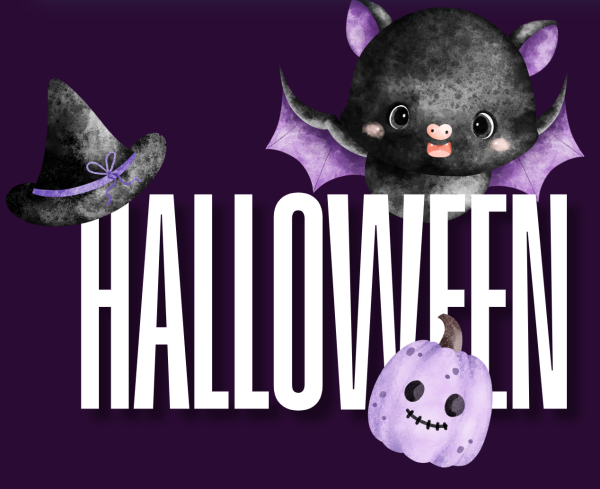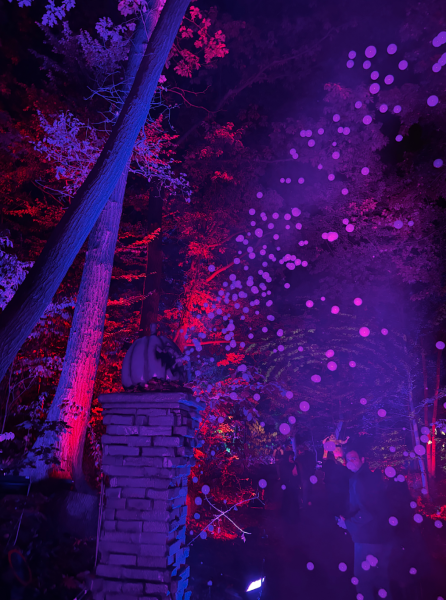Nick Cave Dissolves Into Falsetto on “Ghosteen”
On Friday, Oct. 4, Nick Cave & the Bad Seeds released “Ghosteen,” a two-part album that was announced only two weeks ago. Don’t let the name fool you — “Ghosteen” is not a Halloween-themed album.
The Thomas Kinkade–esque painting (actually produced by gospel artist Tom duBois) used as the cover image and the album’s title were clues to what this release’s topics would cover: the separation the afterlife induces and the search for peace.
These two themes are central to the deeply personal record. This is the first full-length release since the death of Cave’s 15-year-old son (2016’s “Skeleton Tree” was already in production at the time of his passing), and it shows.
Cave begins the album with assurance in “Spinning Song,” singing in an uncommon falsetto reminiscent of a choir: “Peace will come, a peace will come, a peace will come in time/ A time will come, a time will come, a time will come for us.” And so Cave’s album-long search for meaning and wholeness begins.
The falsettos — simultaneously heavenly and ghostly — continue on the tracks “Bright Horses,” “Waiting for You,” “Sun Forest,” “Leviathan” and “Hollywood.”
Other heavenly and ghostly elements come together to form heartbreak in the titular song, where Cave describes the life of a family once their son is gone.
Verses after singing, “Ghosteen dances in my hand,” Cave continues with, “There’s nothing wrong with loving something you can’t hold in your hand/ You’re sitting on the edge of your bed, smoking and shaking your head.”
In the announcement of “Ghosteen,” Cave stated that the first eight songs of the album were its “children,” and the final three, including the spoken poem, its “parents.”
While it could be easy to interpret this as Cave and his wife’s perspectives versus their two sons, fans and critics speculate that this could simply reference the song-writing process. The final songs preceded the bulk of the record. The interconnectedness and theme-repetition throughout the album’s lyrics point to the latter being the case.
The lyrics in “Night Raid” are derived from those of the spoken poem “Fireflies” on part two, and, if interpreted to be as personal as Cave has sought to be in recent years, appears to be a memory of the conception of his twin sons: “They were just a sigh released from a dying star/ They were runaway flakes of snow, yeah, I know/ They annexed your insides in a late night raid.”
The album ends with the 14-minute long “Hollywood,” which sonically brings back darker elements reminiscent of “Push the Sky Away” and maintains the album’s running use of falsettos. The chorus, the apparent origin of the “Spinning Song” outro, repeats, “And I’m just waiting now for my time to come/ … And I’m just waiting now for peace to come.”
The track’s final verse details the story of a mother mourning the loss of her baby, to which Cave reacts with, “Everybody’s losing someone/ It’s a long way to find peace of mind, peace of mind.”
“Ghosteen” opened with a hopeful determination to find contentment; “Hollywood” shows audiences a man tired from the journey, as well as a man who has accepted the hand fate dealt him.
Concluding a trilogy that began with 2013’s “Push the Sky Away,” one can only wonder what will come next — a further broken-down, synthesizer-filled record from the Bad Seeds, another guitar-led Grinderman release or, perhaps, something entirely different from what Cave has done previously.
Copy Chief for Volume 101.
















































































































































































































Katherine Latanville • Oct 12, 2022 at 12:58 pm
I could barely understand ANY of what you wrote…